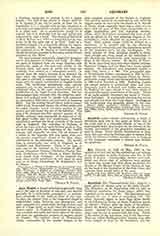

Aquarians (Gr., Uropapastatai; Lat., Aquarii), a name given to several sects in the early Church. The Ebionites, as St. Epiphanius tells us, had an idolatrous veneration for water (aqua), which they regarded as the source of life. The Manichaean sects rejected the use of wine as something evil. The name, however, seems to have been given chiefly to the followers of Tatian, of whom Theodoret speaks as follows: “Tatian, after the death of his master, Justin the Martyr, set himself up as the author of a heresy. Among the things he rejected were marriage, and the use of animal food and wine. Tatian is the father of the Aquarians, and of the Encratites. They are called Hydroparastat, because they offer water instead of wine [in the Eucharist]; and Encratites because they neither drink wine nor eat animal food. From these they abstain because they abhor them as something evil…” They are mentioned by St. Irenaeus and by Clement of Alexandria. St. Augustine in his “Catalogue of Heresies” says: “The Aquarians are so called because in the cup of the Sacrament they offer water, not that which the whole Church offers”. St. John Chrysostom, arguing against the Aquarians, declares that Our Lord drank wine after His Resurrection in order to prove that at the institution of the Eucharist also He had used wine. At the time of St. Cyprian the practice existed in some parts of Africa of using water instead of wine in the celebration of the Eucharist. He strongly condemned it in one of his letters, ascribing it, however, to ignorance and simplicity rather than to an heretical spirit.
B. GULDNER

